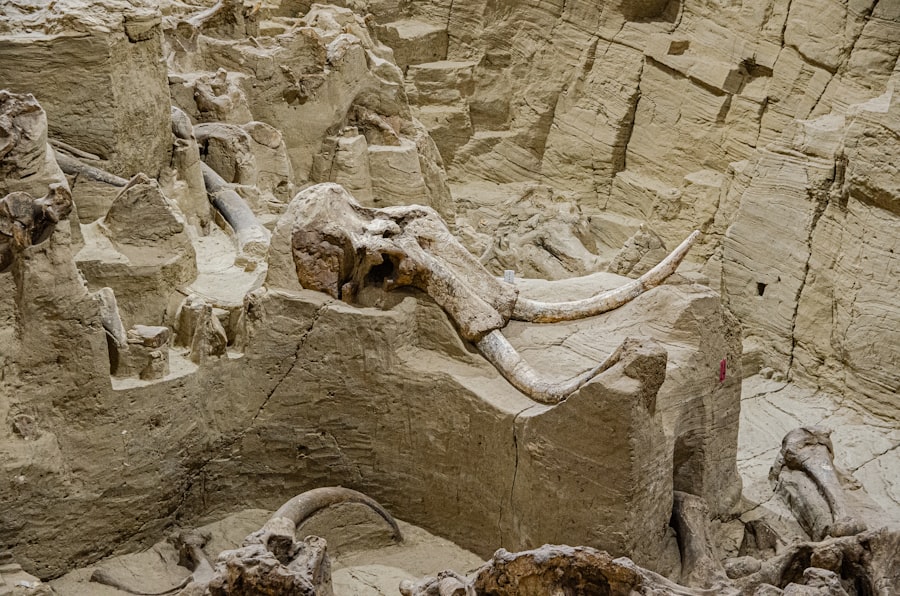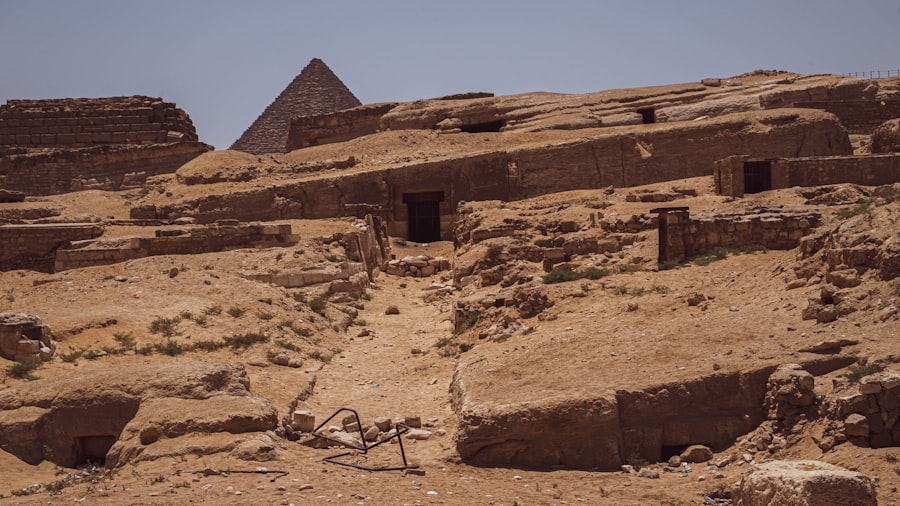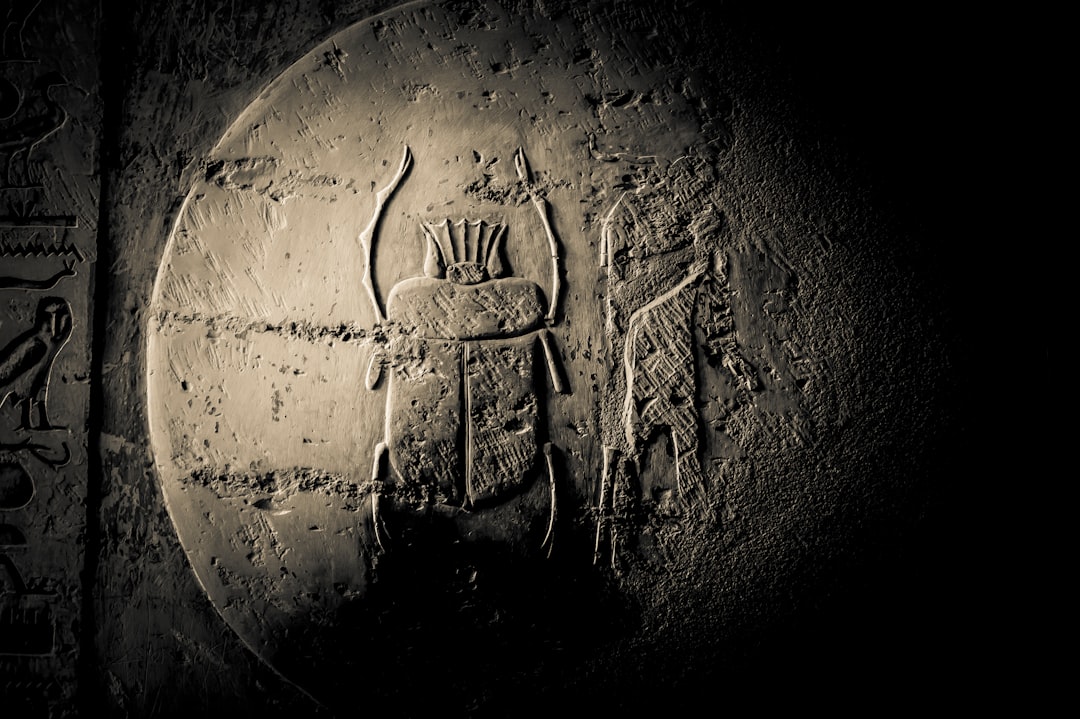The legend of Atlantis has captivated the imagination of countless generations, weaving a tale of a magnificent civilization that vanished beneath the waves. This mythical island, described as a utopia of advanced technology and unparalleled wealth, has become synonymous with the idea of lost civilizations. According to ancient accounts, Atlantis was said to be a powerful empire that existed around 9,000 years before Plato’s time, flourishing in harmony with nature and boasting remarkable architectural achievements.
The allure of this fabled land lies not only in its grandeur but also in the mystery surrounding its ultimate fate. The story of Atlantis is often regarded as a cautionary tale about hubris and the consequences of moral decay. As the legend goes, the Atlanteans became increasingly corrupt and greedy, leading to their downfall.
This narrative serves as a reflection of human nature and the potential for self-destruction when power and wealth are misused. The enduring fascination with Atlantis speaks to humanity’s desire to uncover lost knowledge and explore the boundaries of possibility, making it a timeless subject of intrigue.
Key Takeaways
- Atlantis is a legendary lost civilization first described by Plato.
- Numerous theories propose different locations for Atlantis, from the Mediterranean to the Atlantic Ocean.
- Ancient texts and modern archaeology provide mixed evidence, fueling ongoing debates.
- Skepticism persists due to lack of definitive proof and conflicting interpretations.
- The Atlantis myth continues to influence culture and inspire future research efforts.
The Search for Atlantis
The quest for Atlantis has inspired explorers, historians, and archaeologists for centuries. From the time of Plato, who first introduced the concept in his dialogues “Timaeus” and “Critias,” individuals have sought to locate this enigmatic civilization. The search has taken many forms, ranging from serious academic inquiries to fantastical expeditions fueled by myth and legend.
Each new generation has brought its own interpretations and theories, contributing to the rich tapestry of Atlantis lore. Throughout history, various figures have claimed to have found evidence of Atlantis’s existence.
The allure of discovering a lost world has driven many to embark on perilous journeys, often leading to more questions than answers. Despite the lack of concrete evidence, the search for Atlantis continues to ignite curiosity and inspire exploration, as adventurers seek to uncover the truth behind this legendary civilization.
Theories about Atlantis’s Location

Theories regarding the location of Atlantis are as diverse as the individuals who propose them. Some scholars argue that the island was situated in the Mediterranean Sea, with Crete or Santorini being popular candidates due to their advanced Minoan civilizations. These locations offer compelling archaeological evidence of sophisticated societies that could have inspired Plato’s account.
Others suggest that Atlantis may have been located in the Azores or even in the depths of the Caribbean, where submerged ruins could potentially lie hidden beneath the ocean. In contrast, some researchers have taken a more radical approach, proposing that Atlantis was not a physical place at all but rather a metaphorical representation of an ideal society. This interpretation suggests that Plato used the story of Atlantis as an allegory for his philosophical ideas about governance and morality.
By examining these various theories, it becomes clear that the search for Atlantis is not merely about finding a lost city but also about understanding the deeper meanings behind its legend.
Plato’s Account of Atlantis
| Aspect | Description | Source | Details |
|---|---|---|---|
| Origin | Plato’s dialogues “Timaeus” and “Critias” | Plato (c. 360 BCE) | Atlantis is described as a powerful island nation that existed about 9,000 years before Plato’s time. |
| Location | Beyond the “Pillars of Hercules” (Strait of Gibraltar) | Plato’s texts | Atlantis was said to be located in the Atlantic Ocean, west of the Mediterranean Sea. |
| Size | Approximately 3,000 stadia wide | Critias | About 555 km (345 miles) in diameter, according to some interpretations of the ancient Greek stadion. |
| Political Structure | Monarchy with ten kings | Critias | The island was divided into ten regions, each ruled by a king descended from Poseidon. |
| Capital City | Concentric rings of land and water | Critias | The city featured alternating rings of water and land, with a central hill and temple. |
| Destruction | Catastrophic natural disaster | Timaeus and Critias | Atlantis sank into the sea “in a single day and night of misfortune.” |
| Purpose of Account | Moral and political allegory | Scholarly interpretation | Many scholars believe Plato used Atlantis as a cautionary tale about hubris and imperial overreach. |
Plato’s account of Atlantis is foundational to the legend and serves as the primary source for much of what is known about this lost civilization. In his dialogues “Timaeus” and “Critias,” he describes Atlantis as a powerful island nation located beyond the “Pillars of Hercules,” which is commonly identified as the Strait of Gibraltar. According to Plato, Atlantis was a highly advanced society with impressive architecture, a complex political system, and a rich culture that thrived for thousands of years before its sudden demise.
Plato’s narrative is filled with vivid descriptions of grand palaces, lush landscapes, and an intricate network of canals that showcased the Atlanteans’ engineering prowess. However, it is essential to recognize that Plato’s writings were not intended as historical accounts but rather as philosophical explorations. His depiction of Atlantis serves as a vehicle for discussing themes such as morality, power, and the ideal state.
This duality raises questions about whether Atlantis was ever meant to be taken literally or if it was simply a fictional construct designed to convey deeper truths.
Ancient Texts and Artifacts
In addition to Plato’s writings, various ancient texts and artifacts have been linked to the legend of Atlantis, further enriching its narrative. Some historians have examined references in works by other ancient authors, such as Herodotus and Diodorus Siculus, who alluded to advanced civilizations that may have inspired the tale of Atlantis. These texts often describe societies with remarkable achievements in architecture, governance, and technology, echoing elements found in Plato’s account.
Archaeological discoveries have also played a crucial role in shaping perceptions of Atlantis. Sites such as Knossos on Crete and Akrotiri on Santorini exhibit advanced urban planning and artistic sophistication that resonate with descriptions of Atlantean culture. While these findings do not provide definitive proof of Atlantis’s existence, they suggest that ancient civilizations possessed knowledge and capabilities that could have inspired Plato’s legendary narrative.
Modern Archaeological Discoveries

In recent years, modern archaeological discoveries have reignited interest in the search for Atlantis. Advances in technology, such as underwater exploration and satellite imaging, have allowed researchers to investigate previously inaccessible areas of the ocean floor. These innovations have led to significant findings that some believe could be linked to the lost civilization.
For instance, underwater structures resembling roads or buildings have been discovered off the coast of various regions, including the Bahamas and off the coast of Spain. While these findings are often met with skepticism from mainstream archaeology, they fuel speculation about potential connections to Atlantis. As researchers continue to explore these submerged landscapes, they hope to uncover evidence that could either validate or debunk long-held beliefs about this legendary civilization.
Controversies and Skepticism
Despite the enduring fascination with Atlantis, controversies and skepticism surround its existence. Many historians argue that there is insufficient evidence to support claims of a lost civilization matching Plato’s description. Critics contend that the story may have been purely allegorical or a cautionary tale rather than a historical account.
This skepticism is further compounded by the lack of concrete archaeological evidence directly linking any known civilization to Atlantis. Moreover, sensationalist claims made by pseudoarchaeologists often muddy the waters surrounding legitimate research efforts. These individuals may promote unverified theories or misinterpret findings to fit their narratives, leading to public confusion about what constitutes credible scholarship.
As a result, serious researchers must navigate a landscape fraught with misinformation while striving to uncover the truth behind one of history’s most enduring legends.
Theories about the Disappearance of Atlantis
Theories regarding the disappearance of Atlantis are as varied as those concerning its location. Some suggest that natural disasters such as earthquakes or volcanic eruptions could have led to its sudden demise. The eruption of Santorini around 1600 BCE is often cited as a potential catalyst for such an event, causing widespread destruction in nearby regions and possibly inspiring tales of a lost civilization.
Others propose more fantastical explanations, including extraterrestrial intervention or advanced technology gone awry. These theories often capture public imagination but lack substantial evidence to support them. Ultimately, the mystery surrounding Atlantis’s disappearance remains unsolved, leaving room for speculation and debate among scholars and enthusiasts alike.
Atlantis in Popular Culture
The legend of Atlantis has permeated popular culture in myriad ways, influencing literature, film, art, and even video games. From Jules Verne’s “Twenty Thousand Leagues Under the Sea” to Disney’s animated film “Atlantis: The Lost Empire,” interpretations of this mythical civilization continue to evolve and captivate audiences worldwide. These portrayals often blend elements of adventure and fantasy with themes of exploration and discovery.
Moreover, Atlantis has become a symbol for humanity’s quest for knowledge and understanding. It represents both an idealized vision of civilization and a cautionary reminder of what can happen when societies lose their moral compass. As such, it serves as a powerful narrative device that resonates across cultures and generations.
The Impact of the Atlantis Myth
The impact of the Atlantis myth extends beyond mere entertainment; it has influenced philosophical thought, scientific inquiry, and cultural identity throughout history. The story has prompted discussions about governance, ethics, and human potential while inspiring countless individuals to seek knowledge and explore uncharted territories. The idea of a lost civilization serves as a metaphor for humanity’s aspirations and fears regarding progress and decline.
Furthermore, the myth has fostered a sense of wonder about our past and our place in history. It encourages people to question established narratives and seek out hidden truths within their own cultures. In this way, the legend of Atlantis continues to shape collective consciousness and inspire future generations to explore both their own histories and those yet undiscovered.
The Future of Atlantis Research
As research into Atlantis continues into the 21st century, scholars remain divided on its significance and existence. While some pursue traditional archaeological methods in hopes of uncovering tangible evidence, others explore interdisciplinary approaches that incorporate mythology, philosophy, and environmental science. This evolving landscape reflects broader trends in academia toward holistic understanding rather than rigid categorization.
The future of Atlantis research may also benefit from advancements in technology that allow for more precise exploration of underwater sites and ancient landscapes.
In conclusion, the legend of Atlantis remains one of history’s most enduring mysteries—a tale that intertwines fact with fiction and invites exploration into humanity’s past aspirations and failures.
Whether viewed through a lens of skepticism or wonderment, it continues to inspire inquiry into lost civilizations and our collective quest for knowledge.
One of the biggest archaeological mysteries is the enigma surrounding the lost city of Atlantis, which has fascinated historians and archaeologists for centuries. For those interested in exploring this topic further, a related article can be found at XFile Findings, where various theories and discoveries related to ancient civilizations are discussed in detail.
WATCH THIS! The Sphinx’s Secret Chamber: Why Egypt’s Government Forbids Scanning the Hall of Records
FAQs
What is considered the biggest archaeological mystery?
The biggest archaeological mystery often refers to ancient sites or artifacts whose origins, purpose, or creators remain unknown or debated. Examples include the construction techniques of the Great Pyramids of Giza, the purpose of Stonehenge, and the disappearance of the Indus Valley Civilization.
Why do some archaeological sites remain a mystery?
Many archaeological sites remain mysterious due to a lack of written records, erosion or destruction over time, incomplete excavations, or the complexity of interpreting ancient cultures with limited evidence.
How do archaeologists try to solve these mysteries?
Archaeologists use a combination of excavation, carbon dating, analysis of artifacts, advanced technologies like ground-penetrating radar, and interdisciplinary studies involving anthropology, geology, and history to uncover clues about ancient sites.
Can new technology help solve archaeological mysteries?
Yes, new technologies such as 3D scanning, DNA analysis, satellite imagery, and remote sensing have significantly advanced the ability to discover and understand archaeological sites, often revealing information that was previously inaccessible.
Are all archaeological mysteries eventually solved?
Not all mysteries are solved; some remain unresolved due to insufficient evidence or the loss of critical information over time. However, ongoing research and discoveries continue to shed light on many ancient enigmas.
What impact do archaeological mysteries have on our understanding of history?
Archaeological mysteries challenge and expand our knowledge of human history, prompting new theories and insights about ancient civilizations, their cultures, technologies, and interactions.
Can public interest influence archaeological research?
Yes, public interest can lead to increased funding, preservation efforts, and support for archaeological projects, which can accelerate research and discoveries related to mysterious sites.
Are there ethical concerns in investigating archaeological mysteries?
Yes, ethical concerns include respecting the cultural heritage and beliefs of descendant communities, avoiding looting or destruction of sites, and ensuring that research is conducted responsibly and transparently.
